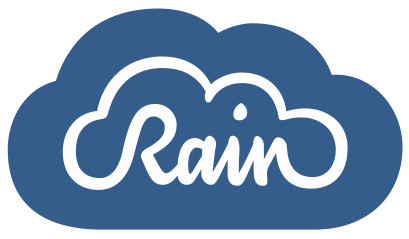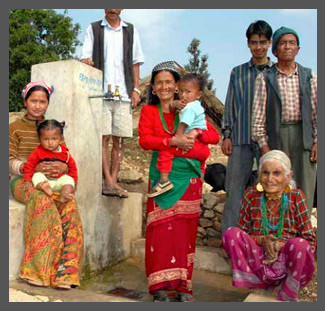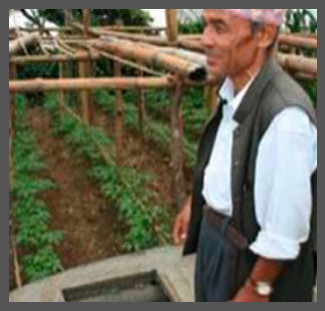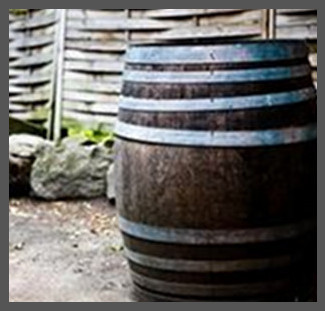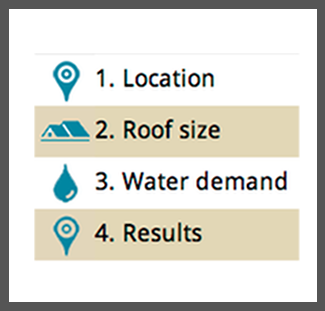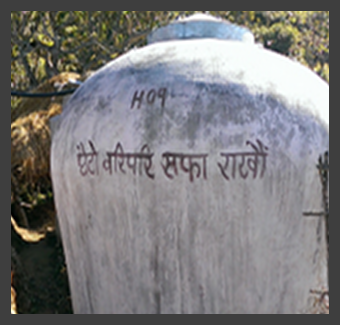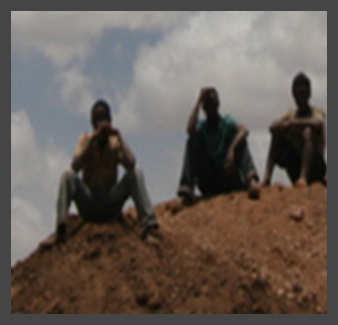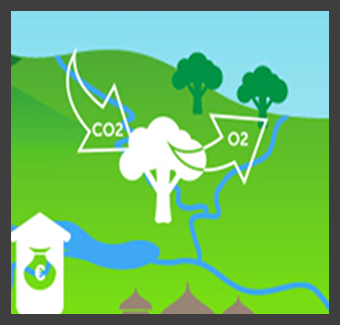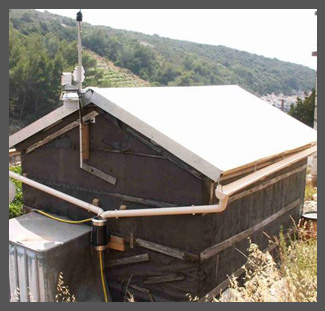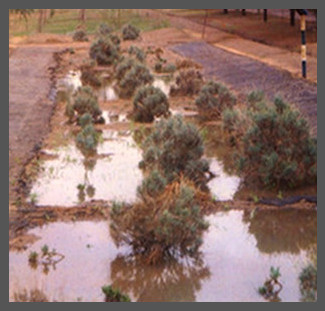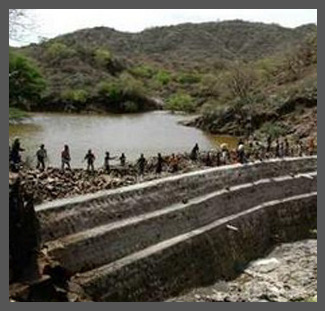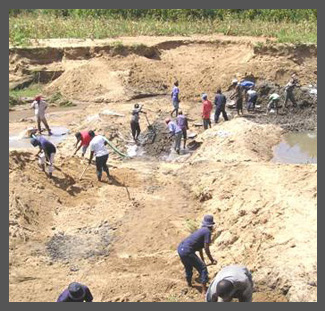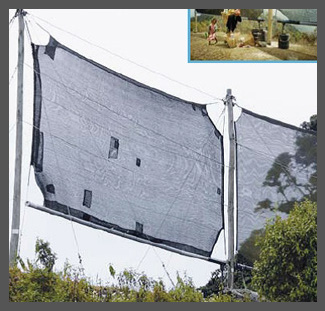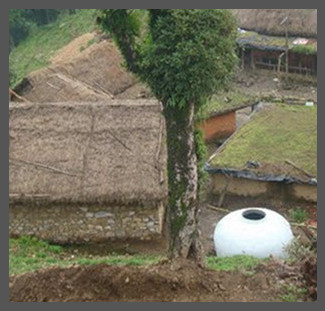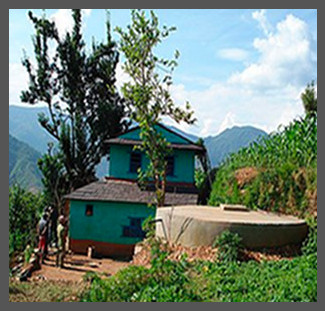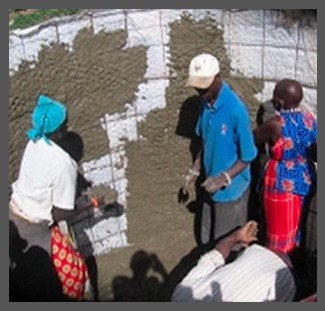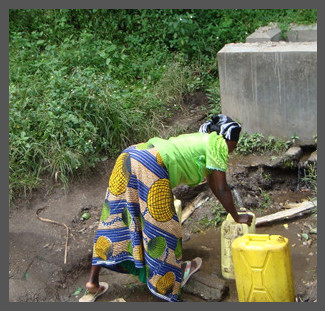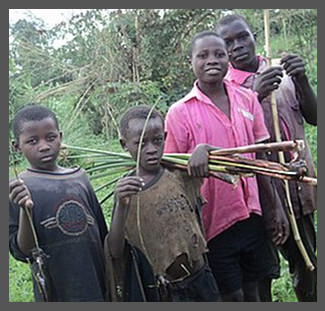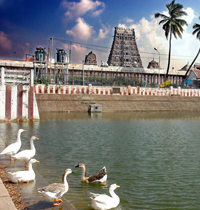वाटर पोर्टल / वर्षाजल संचयन
| |
|
|
|
|
|
|
|
|
वर्षाजल संचयन बारिश के पानी के प्राकृतिक तालाब या टंकियों में संग्रहण और भंडारण की एक तकनीक है, साथ ही इसके जरिये भूमिगत जलवाही स्तरों का भी पुनर्भरण किया जाता है (इससे पहले कि यह सतह से सूक जाये). रूफटॉप हारवेस्टिंग वर्षाजल संचयन का एक तरीका है. रूफटॉप हारवेस्टिंग में टाइल, धातु या प्लास्टिक की छत उपयोगी हो सकती है, मगर घास या खजूर या फूस की छत नहीं. यह बारिश के बहाव को रोक देता है और घरेलू इस्तेमाल के लिए उच्च गुणवत्ता वाला पेयजल उपलब्ध कराता है और इसे साल भर के लिए भंडारित किया जा सकता है. इस पानी के दूसरे इस्तेमाल भी हो सकते हैं, जैसे बगीचे के लिए, पालतू पशुओं के लिए, सिंचाई के लिए, आदि.
वर्षाजल संचयन के उपयोग के कारण इन तीन सवालों पर आधारित हैं:
क्या: वर्षाजल संचयन से जलापूर्ति और फसल उत्पादन बेहतर होगा और अंततः खाद्य सुरक्षा असरदार होगी.
कौन: ग्रामीण इलाकों में जल संकट वाले मकान या परिवार वर्षाजल संचयन के इस तंत्र से सर्वाधिक लाभान्वित होंगे.
कैसे: चूंकि वर्षाजल संचयन जलापूर्ति को बढ़ावा देता है और यह हमें खाद्य सुरक्षा की तरफ ले जाता है, यह जीविकोपार्जन की दिशा में भी बड़ी भागीदारी सुनिश्चित करता है.
Nepal |
Nepal |
3R and MUS |
Clearwater Revival |
Uganda Hills | |
Contents
भारत में वर्षाजल संचयन के उदाहरण
तमिलनाडु पहला भारतीय राज्य है जहां वर्षाजल संचयन को अनिवार्य बनाया गया है. 30 मई, 2014 को राज्य सरकार ने घोषणा की कि वह चेन्नई शहर के विभिन्न हिस्सों में 50 हजार से वर्षाजल संचयन ढांचे का निर्माण करायेगी. [1]
तमिलनाडु के चार हजार से अधिक मंदिरों में तालाब हैं जो विभिन्न कर्मकांडों के लिए प्रयोग में लाये जाते हैं. ये तालाब प्राकृतिक जलवाही के रूप में काम करता है और भूजल संवर्धन में मददगार साबित होता है. मगर गाद और कचरे ने इन तालाबों का रास्ता बंद कर दिया है.
अब, स्वैच्छिक संस्थानों और जल वितरण व उपयोग से संबंधित विभागों द्वारा निरंतर चलाये जा रहे अभियानों के बाद चेन्नई प्रशासन ने तय किया कि वह शहर में 40 बड़े मंदिर तालाबों की मरम्मत करायेगा. तालाबों को वर्षाजल संचयन के जलग्रहण क्षेत्र में बदले का लक्ष्य है. [2]
वर्षाजल संचयन लिंक
क्षेत्रीय अनुभव
- बचाव के लिए पारंपरिक वर्षाजल संचयन तंत्र! वर्षाजल संचयन तंत्र भारत में सफल है.
- चेन्नई - सफलता की कहानी : वर्षाजल संचयन
- Pluvia: ENERGY # “PLUVIA” :: RAIN USED TO ILLUMINATE LOW INCOME HOMES (MEXICO, 2014)
Technologies & methods
- COMPONENTS OF A RAINWATER HARVESTING SYSTEM
- Smart 3R Solutions
- Tree-based sustainable farming in rainfed areas - webinar
Products
- Water Towers: Check Out These Amazing Towers In Ethiopia That Harvest Clean Water From Thin Air
- Groasis waterboxx: Using 1 liter of water instead of 10!
- bob® bag: bob® gives customers access to clean water.
- Rainwater pillow: The Original Rainwater Pillow is an innovative rainwater & storm water harvesting system designed to be stored in horizontal wasted space.
- Rainsoucer: Made in the U.S.A., the patent pending RainSaucer™ is a rain barrel accessory that allows you to harvest rainwater
Organizations & groups
- Rainwater harvesting sources. A list of 45 NGOs, government organizations, and some private companies that focus on rainwater harvesting programs, policies, and supplies.
- Rainwater for Food Security: We set an enabling environment for rainwater harvesting (RWH), in order to significantly increase food security. With help of our community on Rainwater Harvesting, we support the development of a more unified global network of national and regional organisations, networks and professionals, working in or interested in rainwater harvesting. By bringing together these key-actors and sharing knowledge in multiple ways, the Rainwater for Food Security programme aims to achieve sustainable change in rainwater harvesting programmes.
- Rainwater Harvesting Community on Dgroups.
Community Exchange - Rainwater Harvesting
The image below is the entry to conversations about rainwater harvesting (RWH) including best practices, troubleshooting, and advice about tanks and systems. We sourced these from the Rainwater Harvesting Community - a sub community within the Rural Water Supply Network community on Dgroups - which is a free member-only forum, where people can ask a pool of over 700 members from 86 countries about rainwater harvesting. You can become a member on their site for greater involvement, if you have questions you need to know for your RWH project. Click on the image to get started! Or click here.
Field experiences
These projects are utilizing rainwater harvesting techniques and are part of the project listing in Really Simple Reporting (RSR) on Akvo.org. Click the image to get started!
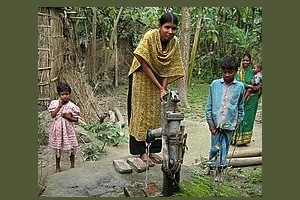 WASH program in Rural Bangladesh |
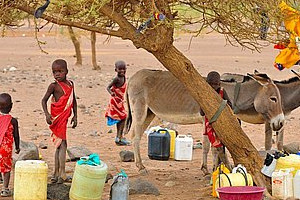 Scale up of Sustainable Water Access |
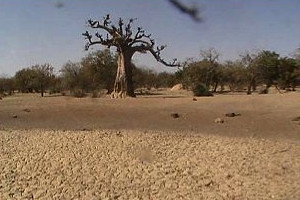 Etude technique d’avant-projet |
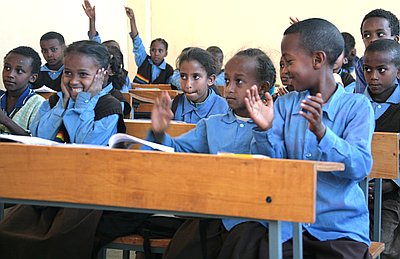 Rainwater harvesting for Nicolas School |
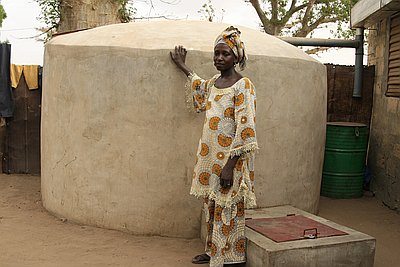 Safe water supply for Fayaco, Senegal | ||
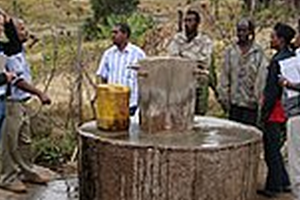 Rainwater Harvesting Capacity Center |
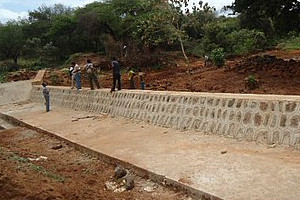 Support on WASH - in Miyo woreda |
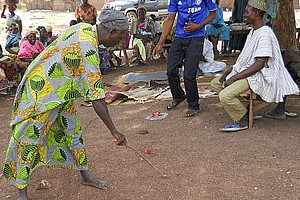 Upscaling CLTS for Healthy Communities |
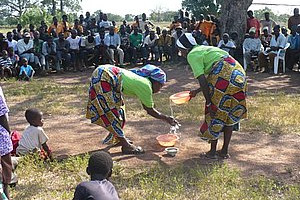 Partnership in WASH services delivery |
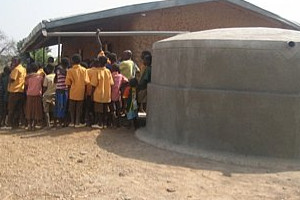 Northern Region WASH Programme | ||
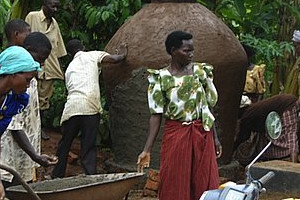 Raising awareness on rainwater harvesting |
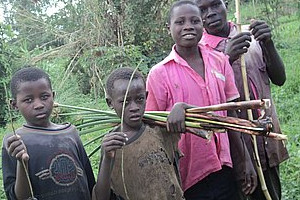 Wetland Management & Water Harvesting |
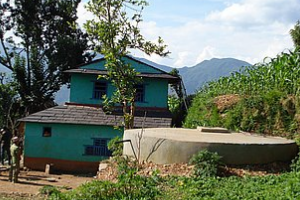 Rain Water Harvesting in Nepal |
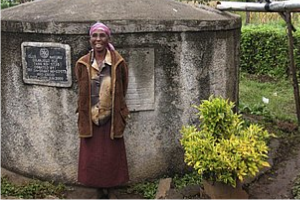 Rainwater Harvesting in Kenya |
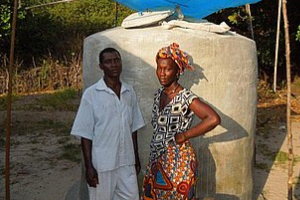 Rainwater harvesting in Guinee Bissau 2 | ||
Acknowledgements
Many of the tools, technologies, and projects on this page are courtesy of the Rainwater Harvesting Implementation Network.
RAIN is an international network with the aim to increase access to water for vulnerable sections of society in developing countries - women and children in particular - by collecting and storing rainwater.
Started in December 2003, RAIN focuses on field implementation of small-scale rainwater harvesting projects, capacity building of local organisations and knowledge exchange on rainwater harvesting on a global scale.
- This rainwater harvesting page can also also be found on the Rainwater harvesting page in Wikiversity.
